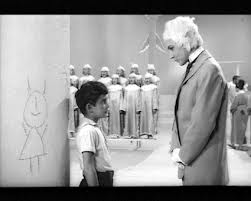Language /
Polish was chosen the HARDEST LANGUAGE in the world to learn... :D [1558]
What was that inner force of the language that has led to this gramatical simplification of English that Fuzzy is so proud of and would like to see in Polish?
The simplification was an after effect of numerous conquests of the British Isles by various Germanic tribes, which took place between 450 AD and 1100 AD (the Norman conquest marked the transition from Old English to Middle English). Anglos, Saxons, Jutes, Danes and Normans were all Germanic tribes who once shared a common language. In the course of the centuries when they were spreading all over Europe, the common language diversified into separate languages or dialects, as you prefer. The roots of most words remained the same but endings, flexion etc. began to differ from one dialect to another. Now, when all these tribes came together again in the British Isles, the easiest way to communicate was to drop the endings, as they created confusion, and use just the roots of words. This, in turn, structuralised the syntax, as the word order of a sentence had to take over the functions previously contained in inflectional endings.
The process took about 600 years. Old English was based on Ango-Saxon dialects; contacts with Jutes,Danes, and finally Normans lead to the simplification of grammar and the transition to Middle English, the structure of which is already quite similar to Modern English.


